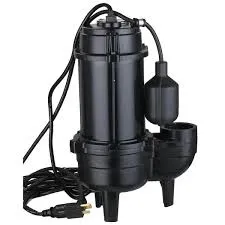Tajik
- Afrikaans
- Albanian
- Amharic
- Arabic
- Armenian
- Azerbaijani
- Basque
- Belarusian
- Bengali
- Bosnian
- Bulgarian
- Catalan
- Cebuano
- Corsican
- Croatian
- Czech
- Danish
- Dutch
- English
- Esperanto
- Estonian
- Finnish
- French
- Frisian
- Galician
- Georgian
- German
- Greek
- Gujarati
- Haitian Creole
- hausa
- hawaiian
- Hebrew
- Hindi
- Miao
- Hungarian
- Icelandic
- igbo
- Indonesian
- irish
- Italian
- Japanese
- Javanese
- Kannada
- kazakh
- Khmer
- Rwandese
- Korean
- Kurdish
- Kyrgyz
- Lao
- Latin
- Latvian
- Lithuanian
- Luxembourgish
- Macedonian
- Malgashi
- Malay
- Malayalam
- Maltese
- Maori
- Marathi
- Mongolian
- Myanmar
- Nepali
- Norwegian
- Norwegian
- Occitan
- Pashto
- Persian
- Polish
- Portuguese
- Punjabi
- Romanian
- Russian
- Samoan
- Scottish Gaelic
- Serbian
- Sesotho
- Shona
- Sindhi
- Sinhala
- Slovak
- Slovenian
- Somali
- Spanish
- Sundanese
- Swahili
- Swedish
- Tagalog
- Tajik
- Tamil
- Tatar
- Telugu
- Thai
- Turkish
- Turkmen
- Ukrainian
- Urdu
- Uighur
- Uzbek
- Vietnamese
- Welsh
- Bantu
- Yiddish
- Yoruba
- Zulu
Telephone: +86 13120555503
Email: frank@cypump.com
Oct . 12, 2024 18:33 Back to list
agricultural slurry pumps
Understanding Agricultural Slurry Pumps An Essential Tool for Modern Farming
In the realm of agriculture, efficient water management and waste disposal are critical for maintaining productivity and sustainability. Among the various equipment utilized in farming, agricultural slurry pumps play a vital role. These pumps are designed specifically to handle slurry, a mixture of water and organic matter, typically containing manure or other agricultural byproducts. This article will explore the significance, functioning, and benefits of agricultural slurry pumps in modern agricultural practices.
What is a Slurry Pump?
A slurry pump is a specialized type of pump used to transport a mixture of liquid and solid particles. In agricultural settings, slurry pumps are primarily employed to move manure, liquid fertilizers, and other organic waste from farms to storage facilities or directly to fields for fertilization. The design of these pumps allows them to handle thick, viscous fluids that contain solids, which would typically cause conventional pumps to clog or malfunction.
Working Principle of Agricultural Slurry Pumps
The primary function of agricultural slurry pumps is to facilitate the movement of slurry
. Most slurry pumps operate using either centrifugal or positive displacement mechanisms.1. Centrifugal Slurry Pumps These are the most common type. They use rotational energy from a rotating impeller to increase the velocity of the slurry, which then moves through the pump piping due to centrifugal force. This type is particularly effective for smaller particles or when the slurry contains a low concentration of solids. 2. Positive Displacement Pumps These pumps work by trapping a fixed amount of slurry and forcing it through the discharge pipe. They are more efficient and ideal for high-viscosity slurries and higher solid concentrations, making them suitable for transporting manure over longer distances or to higher elevations.
Importance of Slurry Pumps in Agriculture
1. Efficient Waste Management Slurry pumps are crucial for managing the waste produced in livestock farming. By facilitating the removal of manure and other waste products, these pumps help prevent environmental contamination and adhere to agricultural regulations pertaining to waste disposal.
agricultural slurry pumps

2. Improved Soil Fertility Using slurry as fertilizer can significantly enhance soil fertility. Agricultural slurry pumps enable farmers to efficiently transport liquid manure to fields, where it can act as a nutrient-rich fertilization resource. This not only improves crop yields but also promotes sustainable farming practices.
3. Labor Reduction Manual handling of slurry can be labor-intensive and hazardous. Slurry pumps automate this process, reducing the physical burden on farm workers and increasing productivity. By mechanizing the transfer of slurry, farmers can allocate their labor to more critical tasks, improving overall farm efficiency.
4. Reduced Odor and Pollution By swiftly relocating waste to designated storage or processing areas, slurry pumps help minimize the odor and pollution associated with manure accumulation on farms. This not only improves the working conditions for farm employees but also benefits the surrounding community and environment.
Selecting the Right Agricultural Slurry Pump
When choosing a slurry pump, farmers should consider several factors
- Slurry Composition Knowing the particle size and viscosity of the slurry is crucial for selecting the appropriate pump type. - Distance and Elevation The pump must be capable of moving slurry over the required distance and height. This often dictates whether a centrifugal or positive displacement pump is more suitable. - Durability Given that slurry can be abrasive, selecting pumps made from robust materials can enhance longevity and reduce maintenance needs. - Maintenance Requirements Regular maintenance is essential for peak performance. Choosing pumps that are easy to service can save time and costs in the long run.
Conclusion
Agricultural slurry pumps are indispensable in contemporary farming practices. They contribute to efficient waste management, enhance soil fertility, reduce labor demands, and minimize environmental impact. As the agricultural sector continues to evolve with technology and sustainability in mind, slurry pumps will remain a key component of effective farm management, offering both economic and environmental benefits. By investing in a reliable slurry pump, farmers not only improve their productivity but also contribute to a more sustainable agricultural landscape.
-
ISG Series Pipeline Pump - Chi Yuan Pumps | Energy Efficiency&Compact Design
NewsAug.03,2025
-
ISG Series Vertical Pipeline Pump - Chi Yuan Pumps Co., LTD.|High Efficiency, Low Noise, Durable
NewsAug.02,2025
-
ISG Series Vertical Pipeline Pump - Chi Yuan Pumps | High Efficiency, Low Noise
NewsAug.02,2025
-
ISG Series Vertical Pipeline Pump- Chi Yuan Pumps Co., LTD.|High Efficiency&Compact Design
NewsAug.02,2025
-
Heavy-Duty Mining Sludge Pumps - Wear-Resistant Slurry Handling
NewsAug.02,2025
-
Horizontal Split Case Pump with GPT-4 Turbo | High Efficiency
NewsAug.01,2025










